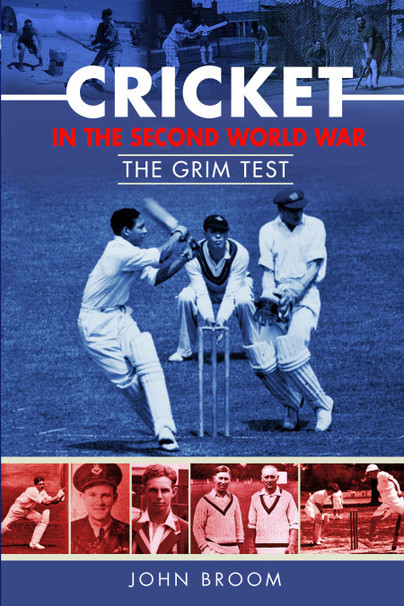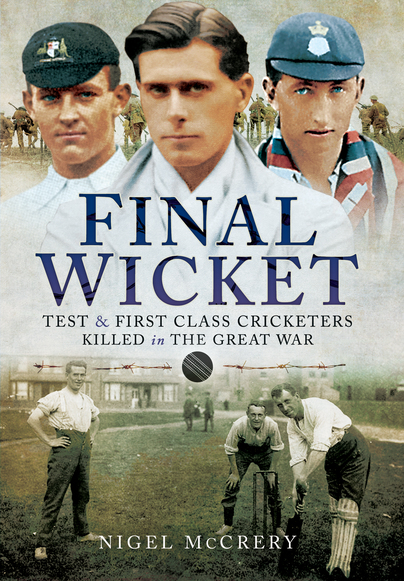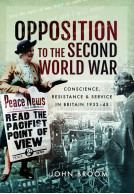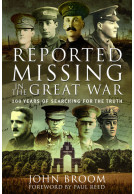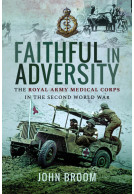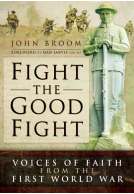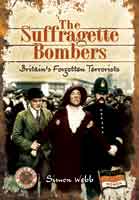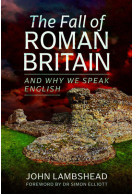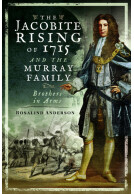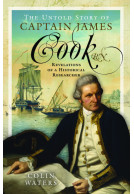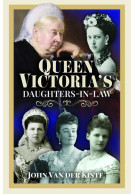Cricket in the Second World War (Hardback)
The Grim Test
Imprint: Pen & Sword History
Pages: 288
Illustrations: 140 integrated black and white illustrations
ISBN: 9781526780171
Published: 28th May 2021
(click here for international delivery rates)
Order within the next 9 hours, 33 minutes to get your order processed the next working day!
Need a currency converter? Check XE.com for live rates
As the civilised world fought for its very survival, Sir Home Gordon, writing in The Cricketer in September 1939, stated that ‘England has now started the grim Test Match with Germany’, the objective of which was to ‘win the Ashes of civilisation’.
Despite the interruption of first-class and Test cricket in England, the game continued to be played and watched by hundreds of thousands of people engaged in military and civilian service. In workplaces, cricket clubs, and military establishments, as well as on the famous grounds of the country, players of all abilities kept the sporting flag flying to sustain morale.
Matches raised vast sums for war charities whilst in the north and midlands, competitive League cricket continued, with many Test and county players being employed as weekend professionals by the clubs.
Further afield the game continued in all the Test-playing nations and in further-flung outposts around the world. Troops stationed in Europe, Africa and the Far East seized on any opportunity to play cricket, often in the most unusual of circumstances.
Luxurious sporting clubs in Egypt hosted matches that pitted English service teams against their Commonwealth counterparts. Luminaries such as Wally Hammond and Lindsay Hassett were cheered on by their uniformed countrymen.
Inevitably there was a sombre side to cricket’s wartime account. From renowned Test stars such as Hedley Verity to the keen but modest club player, many cricketers paid the ultimate price for Allied victory. The Victory Tests of 1945 were played against a backdrop of relief and sorrow. Nevertheless, cricket would emerge intact into the post-war world in broadly the same format as 1939. The game had sustained its soul and played its part in the sad but necessary victory of the Grim Test.
Reviewer: David Pracy
The Essex Family Historian, August 2022
John Broom has succeeded in treating the fallen with respect, while conveying the sheer joy that millions felt in playing and watching cricket as an escape from the dark days of war.
The breadth of John Broom’s research is remarkable. While the main emphasis is on England and the traditional Test-playing countries, he has unearthed details of cricket being played in every theatre of war and even in concentration camps.
This is essential reading for any lover of cricket, for whom it is fascinating to see familiar names turning up in unfamiliar places and circumstances. I would have to say that readers with little or no interest in cricket will find parts of the book hard going, but the cricket is firmly set in the context of its social and military background, and the comprehensive index is well worth checking in case it mentions a person or place you are interested in.
"John Broom has given us much here. Amidst the impressive details, stories of great sporting endeavours shine through. One comes away with a great respect and affection for the way in which players at all levels, in Britain and around the cricketing world, just kept on going as much as possible with the game they loved. This book is an important portrait of the way in which, during those momentous years, cricket, with such fortitude and purpose, successfully re-moulded itself and blended into wartime life."
Guards Magazine, Winter 2021 - 2022
I found this a compelling overview of cricket during some of the darkest years this world has seen.
Richard Lawrence, Association of Cricket Statisticians and Historians
John Groom describes the symbolic "Grim Test", in which Britons fought to win the Ashes of civilisation - the sport continued throughout the war as did soccer, providing some sort of relief from the relentless fighting. Major personalities who were lost or survived are remembered in this terrific book.
Books Monthly
What a fantastic book indeed, being a big cricket fan and having read many cricket books, I’ve never really read one about the war years. This book was a joy to read for any fans of cricket and I’ve so much I’d happily read it again. A lot of research and work must have gone into this book and it really shows. Calling it the Grim Test seems rather apt too and well done considering it was a dark time in the world. It was nice to see really that despite there being a world war on, there was still time for some cricket. A great book I would certainly recommend to others.
UK Historian
Read the full review here
'...genuinely magnificent. Not just the subject area, covered like never before, but in the sheer depth of research...Drama and poignancy rub shoulders on every page and it is a book you will be the better for reading.'
Derbyshire Cricket - Peakfan's Blog
Read the full review here.
' The Grim Test is an immensely satisfying read, and is highly recommended... An impressively researched and immaculately written history of an era that, for perfectly understandable reasons, cricket historians have hitherto tended to neglect. It is also well produced, nicely illustrated and has an excellent index.'
Cricketweb.net - Martin Chandler
Read full review here.
As a lover of the game, I found the book very very interesting and detailed. The part on the Japanese PoW camps was even more so, as I run the Far East PoW website (FEPOW Family). For those interested in the game, this is a must-read.
Ronnie Taylor
About John Broom
After graduating in History from the University of Sheffield in the early 1990s, JOHN BROOM pursued a career in teaching, firstly in his chosen subject and latterly with children with autism. He has been awarded a PhD on Christianity in the British Armed Services by the University of Durham. John has a wide-ranging knowledge and interest in social, sporting, industrial and military history, and is the author of eight published books: Cricket in the First World War: Play Up! Play the Game (Pen & Sword, 2022), Cricket in the Second World War: The Grim Test (Pen & Sword, 2021), Reported Missing in the Great War: 100 years of searching for the truth (Pen & Sword, 2020); Faithful in Adversity: The Royal Army Medical Corps in the Second World War (Pen & Sword, 2019); Opposition to the Second World War: Conscience, Resistance and Service in Britain, 1933–45 (Pen & Sword, 2018); A History of Cigarette and Trade Cards (Pen & Sword, 2018); Fight the Good Fight: Voices of Faith from the Second World War (Pen & Sword, 2016); Fight the Good Fight: Voices of Faith from the First World War (Pen & Sword, 2015).
Final Wicket Test and First Class Cricketers Killed in the Great War (Hardback)
While cricket remains a national game today, at the beginning of the Twentieth Century, it was THE national game. Cricketers were the sporting icons of their age, as footballers are today. When the call to arms was made in 1914 and the years of war that followed, it was answered in droves by young men including Test and First Class cricketers. The machine guns and gas of the Western Front and other theatres did not discriminate and many hundreds of these star performers perished alongside their lesser known comrades. The author has researched the lives and deaths of over 200 top class cricketers…
By Nigel McCreryClick here to buy both titles for £55.00







